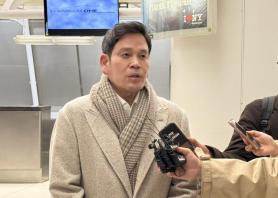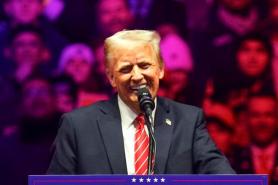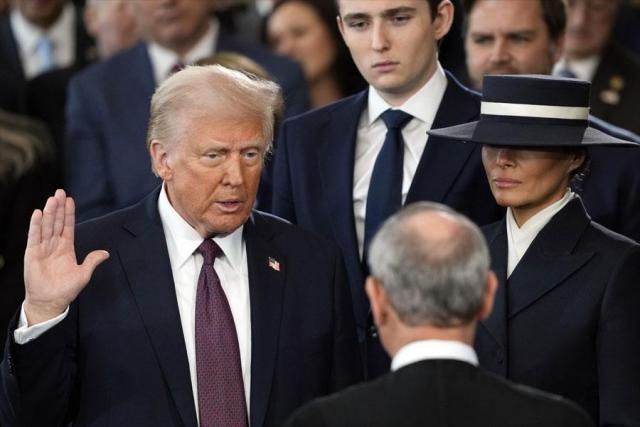
Trump's inauguration inside the Capitol, the first indoor ceremony since 1985 due to bitterly cold weather, comes just a day after South Korean President Yoon Suk Yeol was arrested and incarcerated over his botched martial law debacle last month, making an unprecedented moment in South Korea's modern history.
After a motion to impeach him was passed in the National Assembly about a week after his short-lived overnight fiasco on Dec. 3, he is also at risk of being ousted from office with his impeachment trial currently pending at the Constitutional Court of Korea where deliberations will determine whether to remove or reinstate him.
With North Korea's nuclear weapons program continuing to pose a growing threat, concerns are mounting over how Trump's non-consecutive second term will address the issue.
Not to mention the economic implications caused by his love for "tariff" which he once called "the most beautiful word in the dictionary," threatening to impose them even on allies around the world, shifting U.S. foreign policies under Trump's "America First" approach could signal a departure from previous political stances and diplomatic strategies. This poses increasing challenges for Seoul in protecting its national security and maintaining its alliance with Washington.
Adding to these challenges is a domestic political crisis caused by Yoon's martial law debacle, creating a leadership vacuum at a time of heightened global uncertainty. This political instability could hinder South Korea's response to global challenges, leaving the government's priorities and strategies on key issues in flux. Many experts warn that the current leadership void in Seoul may complicate or hinder coordination with Washington, especially in terms of foreign and security matters, if Trump's administration adopts policies that require immediate and decisive responses.
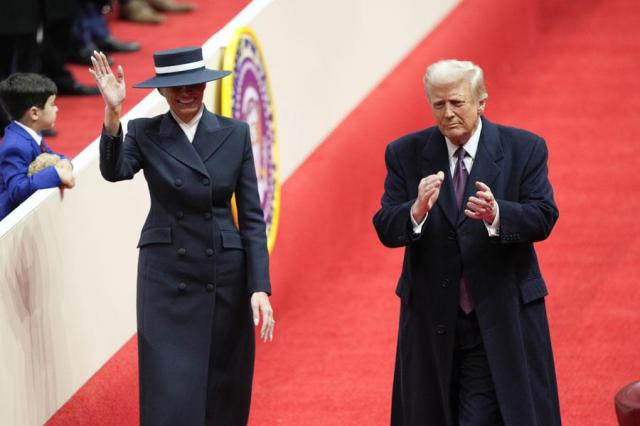
During his first presidency in 2017, Trump demanded that Seoul pay US$5 billion for the upkeep of U.S. Forces Korea (USFK) on the Korean Peninsula, five times the amount Seoul was paying at the time. In response to anticipated concerns, Seoul and Washing expedited negotiations and already signed a defense cost-sharing deal, known as the Special Measures Agreement (SMA) in November last year, despite the current deal having nearly two years remaining until its expiration in 2026.
But Trump's previous rhetoric suggests he may still attempt to break the deal and demand a renegotiation, possibly pushing for an astronomical hike for the upkeep, which could strain relations between the two countries.
South Korea has "a money machine. We protect them (South Korea) from North Korea and other people. North Korea is very nuclear, I got along with him (North Korean leader Kim Jong-un) very well," Trump said during his campaign, arguing that he made South Korea agree to raise its defense costs.
Such remarks indicate the potential for renewed friction, with Seoul likely facing pressure to allocate additional resources for defense expenditures.
Recent remarks made by some of Trump's picks for key security and foreign policy advisers also add to worries, as they have hinted at the possibility of recognizing North Korea as a de facto nuclear state, which is incongruent with South Korea's efforts toward North Korea's denuclearization, undermining regional security on the peninsula while emboldening Pyongyang.
U.S. Defense Secretary nominee Pete Hegseth has referred to North Korea as a "nuclear power," in his written response submitted to the Senate Committee on Armed Services for his confirmation hearing last week.
Hegseth's comment was soon followed by Marco Rubio, a nominee for U.S. Secretary of State, who emphasized his alignment with Trump's "America-First" policy during his confirmation hearing before the Senate Committee on Foreign Relations, saying that "America too often prioritized the global order above our core national interests."
South Korea's spy agency also made similar speculations earlier. "If the U.S. assesses that complete denuclearization of North Korea is not feasible soon, smaller-scale negotiations such as freezing North Korea's nuclear weapons program or seeking partial disarmament may be on the cards," the National Intelligence Service (NIS) here said.
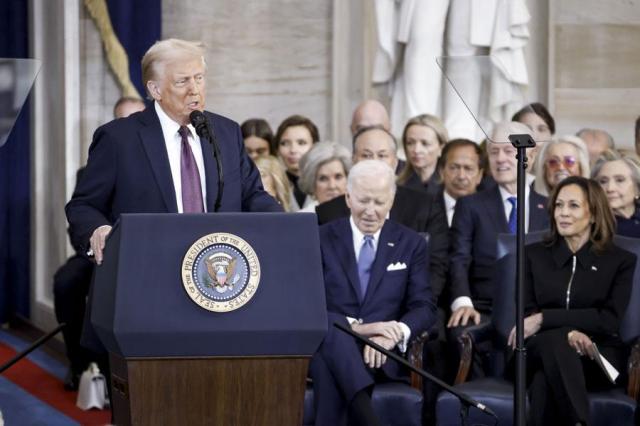
That raises concerns amid growing security risks from North Korea and its deepening military ties with Russia, which led to the deployment of over 10,000 North Korean soldiers to Moscow to support its war in Ukraine. Recent evidence suggests massive casualties including thousands of injuries, though both sides have yet to confirm or deny the presence of North Koreans there.
Overall, Seoul, which has long relied on its robust biliteral alliance with the U.S. to counter North Korea's nuclear threats and missile provocations through joint military exercises and the deployment of U.S. strategic assets in the region, may face pressure to increase its defense spending or take on greater responsibility for its own security. This could have huge ramifications in the areas of politics, diplomacy, and national security amid a shifting geopolitical landscape and an evolving international order.
Copyright ⓒ Aju Press All rights reserved.

